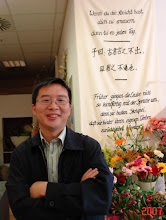Pain 'should be viewed as a disease in its own right'
Health correspondent, BBC News
Chronic pain needs to be recognised as a disease in its own right, experts say.
The hospital doctors and academics argue this would lead to more momentum for official strategies and funding to help patients.
Nearly 8m people in the UK are suffering ongoing problems with pain.
But only 2% of them end up seeing specialists - and a quarter believe their doctors do not know how to treat their pain, research shows.
Prescriptions worth a total of £584m are written every year for painkillers.
And pain - including back problems - is the second most common reason cited by incapacity benefit claimants for not working.
Dr Beverly Collett, a consultant in pain medicine from University Hospitals of Leicester and chairman of the Chronic Pain Policy Coalition campaign group , said: "This problem has huge ramifications for society as a whole. Pain is difficult to treat.
"Many patients are seeking reasons for what is behind the pain - but in the vast majority of cases, you can't find one.
"We are trying to get it taken more seriously - and there's a push, particularly in Europe, to say it is a disease in its own right."
Researchers are examining the idea that changes in the spinal cord and brain have the effect of maintaining pain in sufferers, making it an ongoing problem that can lead to depression or anxiety.
Experts believe more training would help GPs in assessing the severity of patients' pain.
Distraction
Non-medical interventions such as physiotherapy and encouraging patients to stay active can also play a role, with some work showing that distraction can help patients avoid feeling pain.
Professor Steve McMahon, from the Wolfson Centre of Age Related Diseases at King's College London, said the number of new drugs developed to treat pain in the past decade was "very small".
But he said there was interest in the latest trials of a drug called Tanezumab, which might help treat knee and hip pain resulting from osteoarthritis.
Another expert, Irene Tracey, Nuffield professor of anaesthetic science at Oxford University, said: "There is a cultural problem where it's thought that there is a benefit from suffering.
"We have to get over this. It's not acceptable for people to suffer significant pain in the 21st century."
 发自我的 iPhone
发自我的 iPhone

Keine Kommentare:
Kommentar veröffentlichen